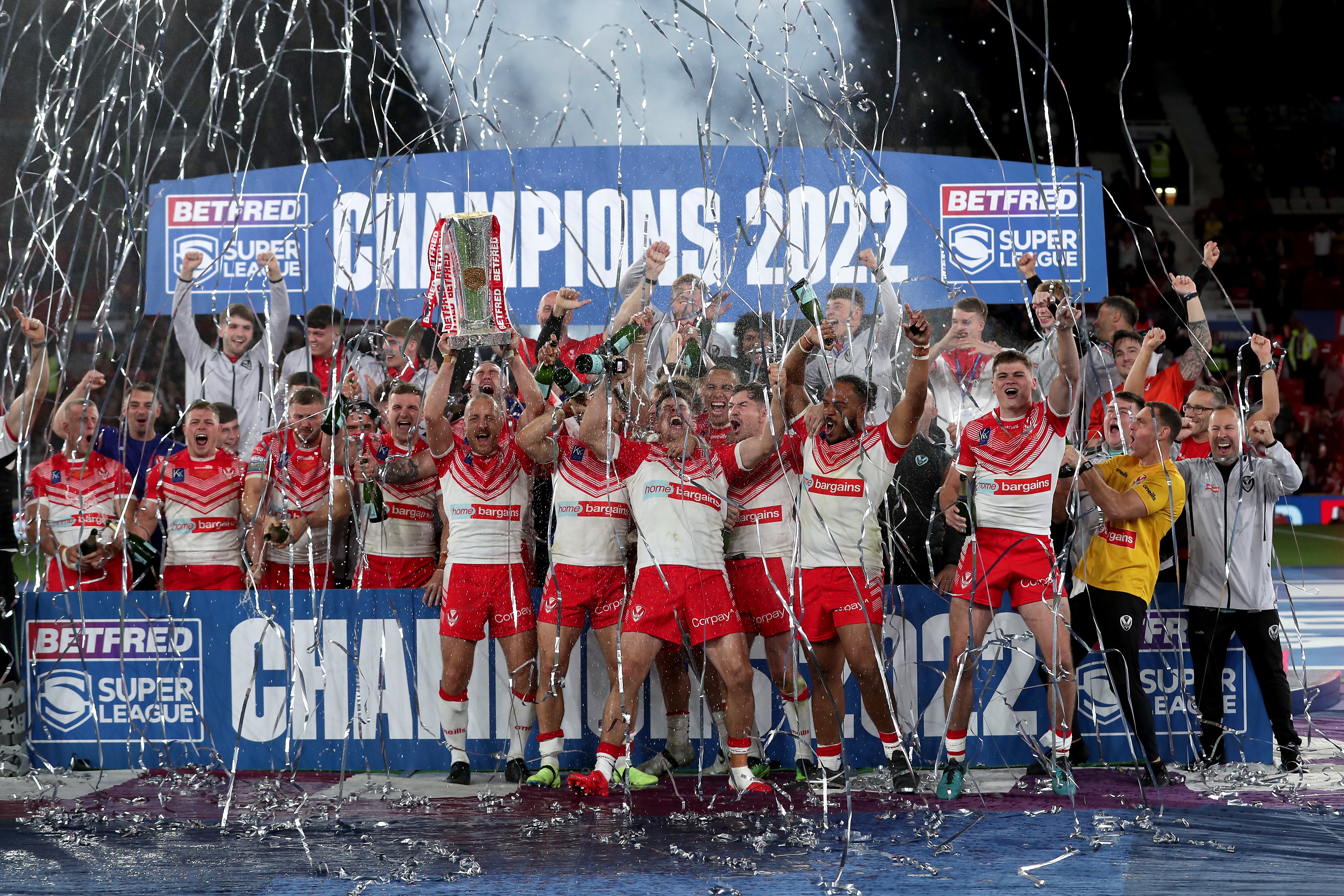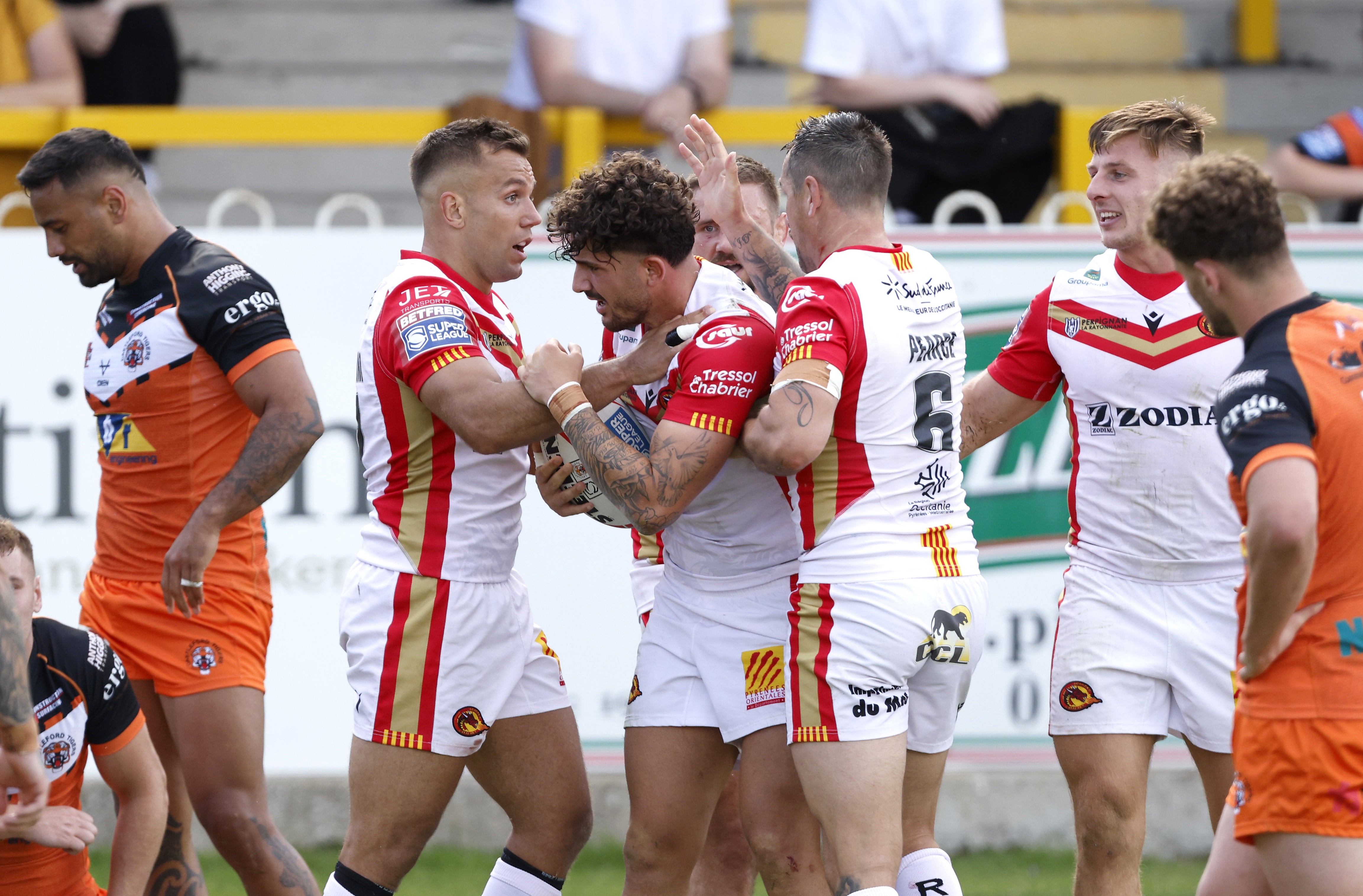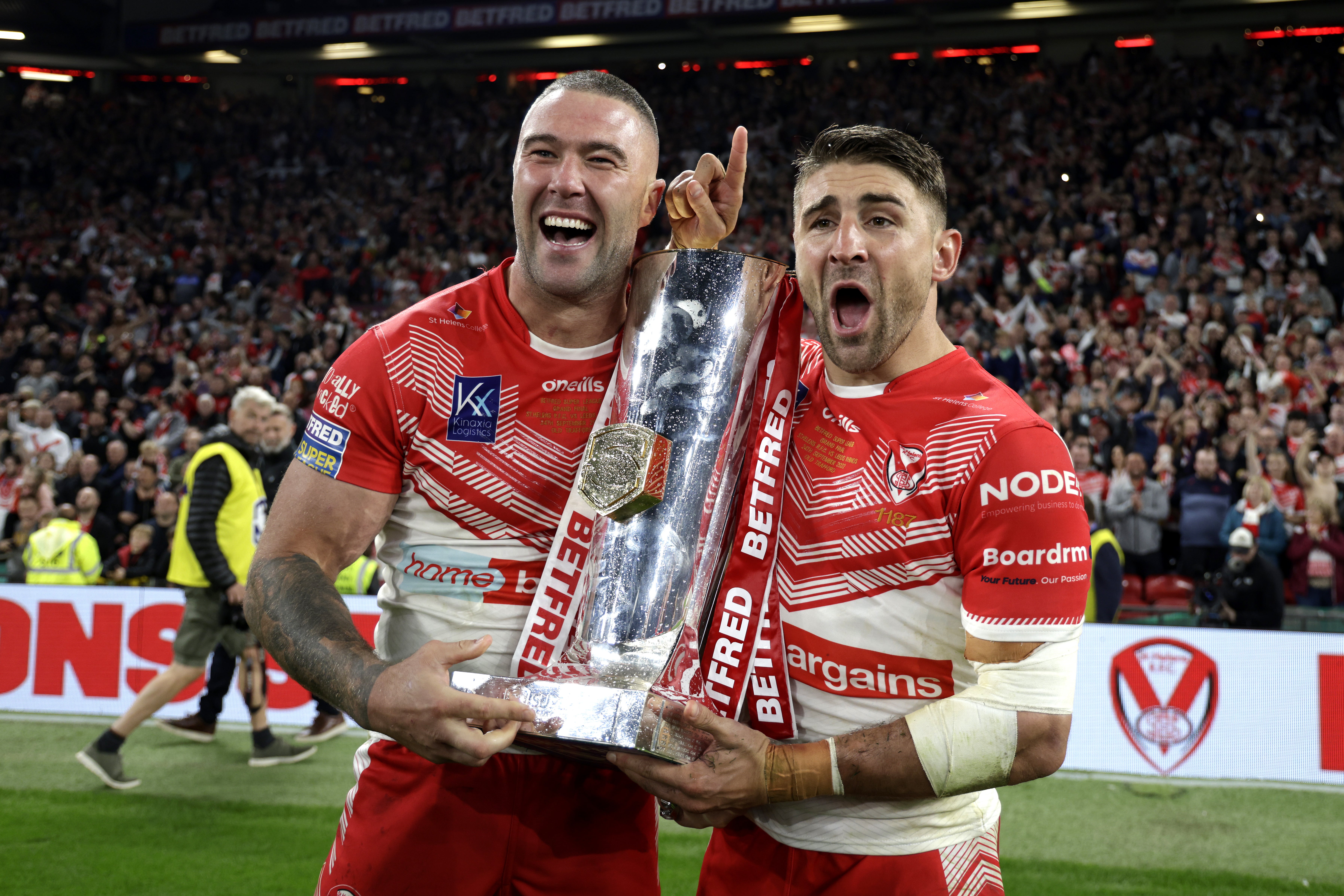Automatic promotion and relegation to Super League set to be scrapped
Clubs will be categorised in three bands based on a series of as-yet undetermined on and off-field criteria.

Your support helps us to tell the story
From reproductive rights to climate change to Big Tech, The Independent is on the ground when the story is developing. Whether it's investigating the financials of Elon Musk's pro-Trump PAC or producing our latest documentary, 'The A Word', which shines a light on the American women fighting for reproductive rights, we know how important it is to parse out the facts from the messaging.
At such a critical moment in US history, we need reporters on the ground. Your donation allows us to keep sending journalists to speak to both sides of the story.
The Independent is trusted by Americans across the entire political spectrum. And unlike many other quality news outlets, we choose not to lock Americans out of our reporting and analysis with paywalls. We believe quality journalism should be available to everyone, paid for by those who can afford it.
Your support makes all the difference.Rugby league is set to scrap automatic promotion and relegation to its top tier and elevate clubs on the basis of a new grading system under proposals unveiled by global sports media giant IMG as part of its 12-year ‘strategic partnership’ with the sport.
Clubs will be categorised in three bands based on a series of as-yet undetermined on and off-field criteria, with teams in the top ‘A’ band guaranteed to earn their place within the competition’s top tier.
Those given category ‘B’ status will fill the remaining places in a 12-team top-flight but face an annual re-assessment in which they must prove themselves worthy of promotion to the safeguarded ‘A’ standard or run the risk of being replaced.
The proposals are set to come into force at the end of the 2024 season, but only if a majority of the 37 professional clubs, who were briefed on the findings by IMG prior to a media presentation in Manchester, vote in favour at a meeting next month.
Matt Dwyer, IMG’s vice president of sports management, said: “We have a unique opportunity to alter the growth trajectory of the sport and we believe the recommendations we have presented today will provide the foundation for that growth and attract new investment into the game.
“Our approach is focused on the product and leveraging the full expertise of IMG and the broader Endeavor network to create a high-quality entertainment offering for the fans.”
Dwyer was anxious to extricate the new plans from the previous licensing model, which was controversially introduced when Super League was launched in 1996, and whose much more rigid criteria effectively excluded a number of clubs from reaching the top flight.
IMG maintains that because its new criteria will focus on a range of factors, it will still be possible for a club that comes up short in one particular aspect – for example, a lower ground capacity – to achieve ‘A’ licensing if it excels across other areas.
The IMG proposals also include abandoning unpopular ‘loop’ fixtures and the annual ‘Magic Weekend’, ensuring a tighter domestic schedule that will create time for an international break and push the Challenge Cup final back to its more traditional May slot.

Expansion will be lower down the list of priorities, with international entrants capped at two – presumably the two current French clubs, Catalans Dragons and Toulouse – and teams from potential growth areas like London and beyond still being required to fit the criteria via robust long-term business plans.
York chairman Clint Goodchild, whose team stand on the cusp of the current top-flight after reaching this season’s Championship play-offs, broadly welcomed the proposals, and said it was imperative that the sport moved away from what he believes is the myth of jeopardy.
“I think overall it’s a positive scenario for the game in general,” Goodchild told the PA news agency.
“I think we have to be bold in our approach and I think it is probably a good middle ground to give clubs the opportunity to meet a minimum standard that should be required by top-tier professional sport.
“The public may be very fond of (promotion and relegation), but the facts say that it doesn’t work. Everyone likes the idea of potentially going up, but I think it’s the hope that kills.
“Clubs are already stretching beyond their means in areas that are unsustainable. They are spending money on players thinking winning on the field will end in profitability and it has crippled the game.
“What I like about this grading system is that it’s not just about where you are in the table, you have to build a business model and something that will carry its own weight.”
However, the IMG proposals drew short shrift at Keighley Cougars, the club who were denied promotion to Super League in 1996 due to the introduction of the licensing model, and this season won all 20 of their league matches as they were promoted back to the second-tier Championship.

“I value the contribution IMG can bring to sport – they bring weight, talent and value,” said the club’s co-owner Ryan O’Neill.
“However, on what I’ve seen today, I have reservations they fully understand rugby league. This sport is rooted in the north and in the communities. These are the foundations to build on, be proud of, and embraced to organically expand.
“There is a huge opportunity to engage with people, to entertain people, to create a sport that is dynamic.
“This doesn’t mean super clubs that are immortal to the jeopardy of relegation. It means offering a competitive sport where losers can become winners, and winners can become losers. Preserving glamour clubs for vanity is not the answer.”
Join our commenting forum
Join thought-provoking conversations, follow other Independent readers and see their replies
Comments